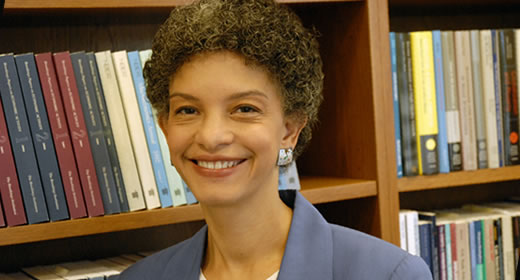
Dear Alumni and Friends,
I’ve recently returned from Jackson Hole, Wyo., where I participated once again in the Federal Reserve Bank’s annual Economic Policy Symposium. This year’s focus was long-term global economic growth. With volatile financial markets, disappointing growth and employment numbers, and fiscal challenges – especially in the U.S.—it was an intense setting. You can hear my thoughts about what might be done to address the high U.S. unemployment rate in this interview with Reuters News.
I’m happy to report that my ongoing participation in this symposium has allowed me to extend invitations to two influential macro-policy leaders—Ben Bernanke, chairman of the Federal Reserve Board, and Robert Zoellick, president of the World Bank—both of whom have graciously agreed to offer public lectures at the Ford School this year, schedules permitting. I look forward to sharing dates and details once we find times that work for their schedules.
In other event news, I’m pleased to announce our 2011 Rosenthal Lecturer: 33-year-old scholar, columnist, and influential Twitter commentator Sultan Al-Qassemi. TIME magazine says he’s “shaping the conversation” on events unfolding in the Middle East. NPR says he “wrote the first draft of Middle East history in short sentences tapped out on his computer and his cell phone.” Here are complete details.
For a full list of upcoming Ford School programs, please visit our newly launched Public Events Calendar, which combines events from all of the school’s centers and programs into a single listing while continuing to enable the centers to promote events on their own websites.
Welcoming new students remains one of my favorite fall tasks as dean. This year’s new students include 112 master’s students hailing from 13 different countries; 60 bachelor’s students—our largest undergraduate class to date; and 6 doctoral candidates pursuing joint degrees in public policy and economics, political science, and sociology.
A number of key leadership roles at the Ford School opened this fall as faculty concluded their terms in office. We have new directors for our Undergraduate Program, PhD Program, and the Science, Technology, and Public Policy Program. Read complete details here.
Once again, under the direction of Professor Elisabeth Gerber, our Applied Policy Seminar (APS), now called Strategic Public Policy Consulting or SPPC, will offer some exciting opportunities to complete a semester-long supervised consulting project for a government or nonprofit agency. Graduate students enrolled in this elective course will be able to select from a range of new policy projects submitted by organizations that are eager to tap into the expertise of our talented students, including the Alvin Ailey American Dance Theater, NextEnergy and the City of Detroit, the Government Accountability Office, the GM Foundation, Focus: HOPE, and the Documentation Center of Cambodia. We welcome proposals from policy organizations who are interested in partnering with us on APS projects—complete details are here.
In addition to coursework and study trips to China and Colombia, we’re pleased to host three courses centered on Detroit’s policy challenges and innovations next semester. Reynolds Farley, the Otis Dudley Duncan Professor Emeritus of Sociology, will lead two one-credit courses (one for undergraduates, and another for graduate students) in March or April. A third course will be taught by U-M’s associate vice president for finance, Rowan Miranda. The course will meet regularly to explore policy challenges in Detroit, then will spend spring break visiting a variety of government, non-profit, and corporate entities for a hands-on, experiential component.
As always, I thank you for your ongoing engagement with the Ford School as we strive to deliver top-notch education, conduct groundbreaking social science research, and tackle the critical policy challenges facing our cities and our nations.
Sincerely,
Susan M. Collins
Joan and Sanford Weill Dean of Public Policy
